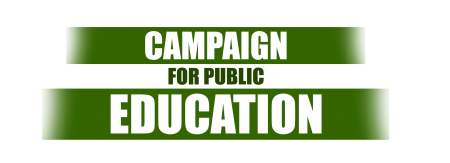“Real problem is the funding”
Education minister backs school closings. Move would free up funding for programs
Toronto Star April 17, 2008 Robert Benzie
Ontario's education minister has lauded a move by the Toronto public board that would lead to closing of many small and under-enrolled schools to free up money to boost programming and open new schools.
"Every board around the province has to deal with its capital assets and has to make decisions that are in the best interest of kids," Kathleen Wynne said yesterday.
"Programs have to be at the heart of all of those decisions, so I'm glad they're looking at it."
Premier Dalton McGuinty said he has no plans to intervene to keep Toronto schools open.
"Boards everywhere – not just the TDSB – have got to grapple with the issue of declining enrolment and to make sure that they're using their precious resources … in a way that best meets the needs of their students," he said yesterday.
"They've got to make the call at the end of the day and I have confidence in their ability to do so."
Each year, enrolment at the Toronto District School Board declines by about 4,000 students, and the board has been looking at ways to deal with schools that have only about half – or even less, in some cases – the students they should.
Board chair John Campbell has called it "the largest financial albatross around our necks," given that 91 of 550 schools are half-empty. Shutting some down would free up money to open new schools in growing neighbourhoods, and allow high schools to offer a range of courses from technical to academic and better serve students, Campbell has also said.
The board last closed nine schools in 2000-01.
The board's General Asset and Program Planning report (GAPP) says the board should aim for elementary schools of 450 students and high schools of 1,200 to get the most out of funding, generate staff and allow for more programming.
"I'm not a fan of it, but it's something we absolutely must get on with," trustee Irene Atkinson has said. With declining enrolment, "we can't be like ostriches with our heads in the sand and say it's business as usual.
"Schools with less than 60 per cent (capacity) are all provided with a caretaker, a secretary and a principal – and that drains resources from other things."
She said the plan has flexibility, so that in areas where it doesn't make sense to close schools to make bigger ones, or eliminate middle schools then nothing has to change.
But trustee Maria Rodrigues, who has many small schools that could potentially be affected, called the report a "travesty" and said the board is already overwhelmed dealing with the closing of school pools and its budget.
Rodrigues and fellow trustee Chris Bolton both said they would attempt to have the report set aside for now.
If approved, the plan would see reviews of six of the 22 wards and public consultations begin as early as June.
Campbell has said he wants to meet with Wynne to present the GAPP report, budget plans and pools decision.
Some parents say the real problem is the funding of school boards, and that's what's really driving the change – not a desire to improve student performance.
"Toronto experienced declining enrolment in the 1980s and the boards kept schools open so long as they had 120 students," said activist parent Chris Glover. "Why don't we follow that model?"
With files from Kristin Rushowy

